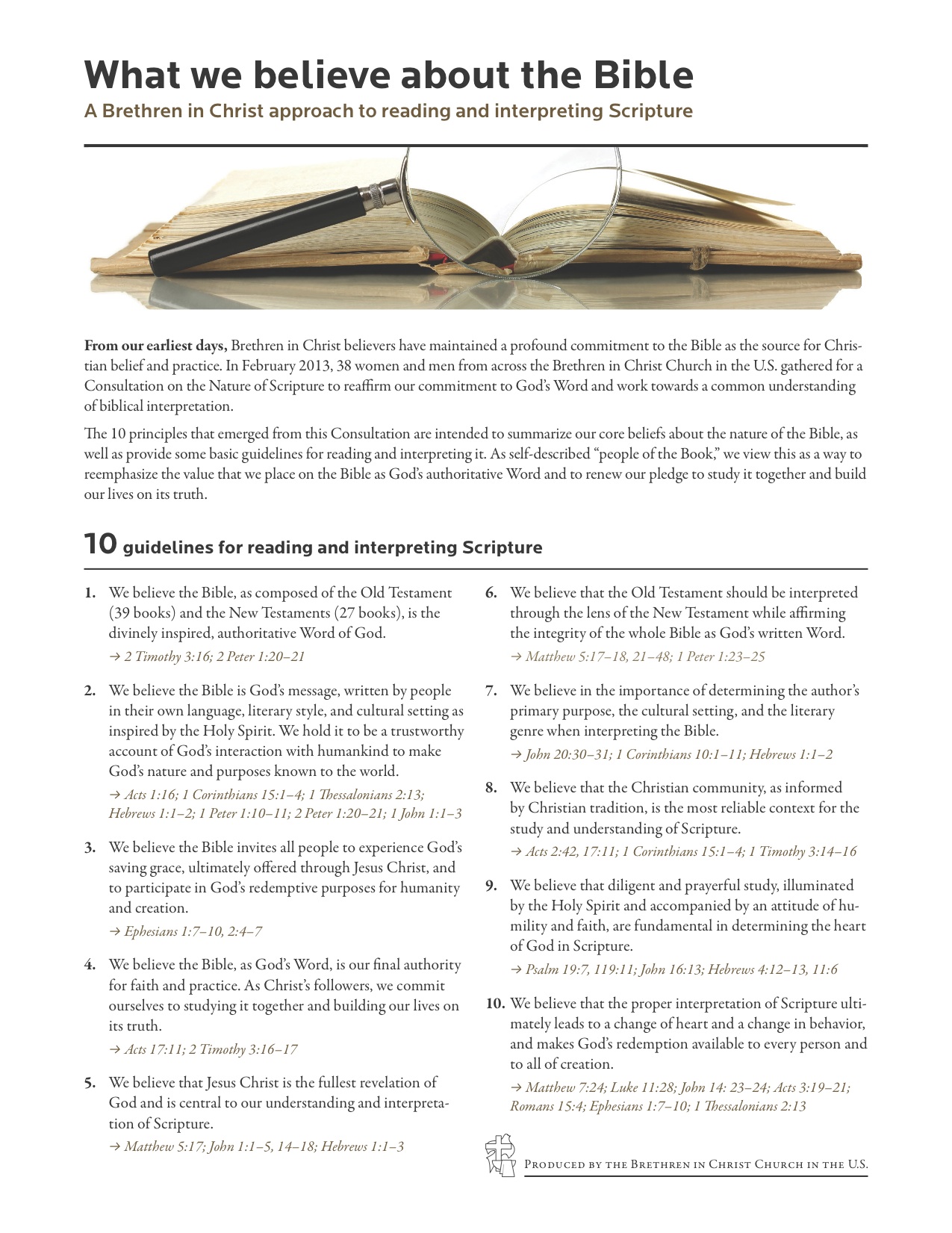 This was the question addressed by a cadre of Brethren in Christ church leaders — pastors, bishops, administrators, scholars, and others — during a consultation at the Carlisle Brethren in Christ Church, in February 2013.
This was the question addressed by a cadre of Brethren in Christ church leaders — pastors, bishops, administrators, scholars, and others — during a consultation at the Carlisle Brethren in Christ Church, in February 2013.
Organized by the Commission on Ministry and Doctrine of the Brethren in Christ Church U.S., the consultation was the latest in a handful of similar gatherings held by the denomination since the 1960s, on topics as diverse as holiness, hermeneutics, and denominational identity.
News coverage of the consultation was handled by the denomination’s Communications Office.
The result of the gathering was a statement of ten principles, available in English and Spanish, declaring what the Brethren in Christ believe about the nature of the authority of Scripture.
The August 2013 issue of Brethren in Christ History and Life will carry further materials from the consultation, including papers presented by scholar Terry Brensinger and bishop Rob Patterson; a presentation given by biblical scholar Mark L. Strauss, the consultation’s keynote presenter; and responses to the statement on biblical interpretation by a variety of Brethren in Christ leaders.

Thank you for this, Devin. I wonder if the church realises how revolutionary #2 is? “We believe the Bible is God’s message, written by people in their own language, literary style, and cultural setting as inspired by the Holy Spirit. We hold it to be a trustworthy account of God’s interaction with humankind to make God’s nature and purposes known to the world.” This point sets us off firmly Islam, in which the Quran cannot have any human element. It also sets us off from many of our people in the past, who would have held that there is no human element in Scripture. That God spoke to the Children of Israel (a tribal group more akin to tribes in Afghanistan today than to us) in their own categories leads to many of the difficulties that we experience with the OT. God used their categories, and we get tied up in knots as a result!